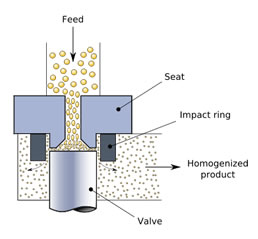After putting my thoughts into a recent post on soy lattes, the topic of milk in general started to pop up and just like soy, milk is a heavily debated topic for sure.
One thing I wanted to add is that our blog at 180 Nutrition is gathering great momentum and there are some very smart people in the industry following it… way smarter than me! The one thing I envisioned when I started blogging was to create awareness on health and hopefully attract like-minded people who contributed with feedback. All questions and comments are encouraged and whilst I’m clearly passionate about health I certainly don’t have all the answers, but I do my best when I can 🙂
Anyway, back to the topic at hand! Why I don’t drink much milk…
 Is milk healthy?
Is milk healthy?
I’m clearly a fan of the ‘latte lifestyle’ and if I had my way, I’d hang out and work in a cafe most days! I’m wary when it comes to milk consumption and I only have one flat white a day with milk. I don’t use milk in my 180 supplement shakes or porridge etc… and here’s why:
I’m not here to convince you as to whether you should drink milk or not but simply create awareness to explore avenues. There’s an argument within itself if we should even be consuming milk as humans. Some say it should stop after breastfeeding, others say we’ve been having it for thousands of years. A bit like vegetarianism, there’s a whole host of conflicting evidence flying around on which is best… healthy debates indeed!
But for me personally, I like to look at the common sense approach and the certain facts that concern me:
Commercialism
Whether we’ve been drinking milk for thousands of years or not, it’s fair to say before industrialisation, if we wanted milk we would have probably strolled out to the back yard and milked the cow ourselves. Failing that we would have traveled to someone who had done that for us. Times have seriously changed and milk is BIG business.
Milk is a derivative of a cow, and as far I’m concerned the quality of the milk depends greatly on the condition of the cow, and the environment it’s kept in.
Did you know the average cow was recorded back in 1930 to only be able to produce roughly 1.5 litres a day. According to this article from Weston A Price – Back in 1930, the average dairy cow produced 12 pounds (about a gallon and a half) of milk per day. In 1988, the average was 39 pounds (4.5 litres) per day. This was accomplished by selective breeding to obtain dairy cows that produced a lot of pituitary hormones, thereby generating large amounts of milk. But the industry was not satisfied with this output. Today rBGH, a synthetic growth hormone, is used to get even more milk out of the dairy cows, bringing the average up to 50 pounds (6 litres) of milk per day.
This is done to meet the ever-increasing demands of milk and to make more money. Yes the above facts are based in America, but here’s a great article written by Tania Flack on growth hormone used in Australian beef cattle.
Not to mention the feed, cows eat grass right? No, the majority are fed on corn! So what impact does this have on the cow? The milk? The beef? Antibiotics anyone?
A great resource on commercial farming is the movie Food Inc.
All these things concern me and this alone puts me off drinking too much commercial milk. There are many articles and resources worth checking out on this topic and I’ll list some at the end.
Pasteurisation
There’s a continuous war going on whether we should be pasteurising milk or not. Pasteurisation is set out to accomplish two things: Destruction of certain disease-carrying germs and the prevention of souring milk. The milk is heated to a high temperature for up to half an hour and kills everything dead.
The heating is indiscriminate and kills all nutritional benefits along with positive bacteria.
If you are drinking milk for it’s calcium, you should consider what extreme heat/pasteurisation does to milk. According to the Dr Mercola website – Probably pasteurisation’s worst offence is that it makes insoluble the major part of the calcium contained in raw milk.
Weston A Price – We have all been led to believe that milk is a wonderful source of calcium, when in fact, pasteurisation makes calcium and other minerals less available. Complete destruction of phosphatase is one method of testing to see if milk has been adequately pasteurised. Phosphatase is essential for the absorption of calcium
From what I’ve researched, literally dozens of other precious enzymes are destroyed in the pasteurisation process, without them milk is very difficult to digest. How many people do you know who are lactose intolerant? This just makes me wonder whether people are intolerant to lactose or actually intolerant to what we are doing to the milk?
Homogenisation

If you look at a clear milk carton these days, you’ll see there is no cream at the top and that it’s been evenly dispersed evenly throughout the milk.
Homogenisation breaks the fat into smaller sizes so it no longer separates, allowing the sale of non-separating milk at any fat specification. This is done by mixing massive amounts of milk to create a constant, then forcing the milk at high pressure through small holes (see illustration above). They do this because it prevents creating various levels of flavor and fat concentration. It is also cosmetically appealing.
The risk?
Surprise surprise, but there’s a war going on regard homogenisation. There are claims that milk homogenisation affects the development of atherosclerosis, coronary heart disease, milk allergy and milk intolerance, Type I diabetes or Type II diabetes.
Whether you believe this or not, I feel that the moment you mess around with food and start highly processing it, it will have it’s consequences. I don’t like the idea of this and I stay away from it when I can.
What’s the alternative?
There are a lot of alternative milk products available these days, from almond milk, oat milk rice milk, soy milk etc. These warrant their own posts, but check the labels as they usually taste pretty bad and are highly sweetened. They certainly don’t help the cause of the latte lifestyle.
Raw milk may you may ask?
I can only speak for myself here. When I started to really pay attention to what was happening to our milk, I switched to raw milk (Cleopatras bath milk). Yes bath milk! It’s called this as it’s illegal to sell raw milk for human consumption. If caught you’ll be treated like a drug smuggler!
I generally don’t drink much milk at all these days, but I drank raw milk for years with no problems. I’ve even known people who are lactose intolerant to drink it with no reaction. Should you drink it? Research first would be my advice. I’ve only scratched the surface when it comes to milk with this post!
As for the latte lifestyle? If you asked for a raw milk flat white they would think you’ve just escaped from an asylum! For me? Long black it is!
Thoughts? If you have any comments or helpful resources, would love to here them.
Audio interview: The process of raw milk production
On a side note: I truly enjoy writing these posts, hence our frequent blog posts. At the end of the day though, these are just my thoughts and feelings around a topic I’m passionate about. I encourage everyone to do their own research and check out the facts for themselves.
If you did enjoy the post and got something from it or have something to share on the topic, I would love to hear your thoughts in the comments section below. If you feel others would benefit from this then it would be great if you could share it using one of the icons below (Facebook etc). Cheers, Guy
Interesting articles & resources
- Why you don’t want to drink pasteurised milk
- Raw milk Vs pasteurised milk
- Milk: It does a body good?
- Hormones used in beef farming
- The movie: Food Inc
[ebook]



 Is milk healthy?
Is milk healthy?



11 Replies to “Love the latte lifestyle? Why I do not drink much milk…”
There is lactose in raw milk too mate. The lactose intolerant won’t be able to drink raw milk either.
Hey Michael… Thanks for the comment!
Yes for sure, lactose is a sugar made up of galactose and glucose and would be in raw milk too. From my experience, I’ve known people who are ‘lactose intolerant’ to make the switch to raw milk without a reaction. Not saying this would work for everyone, but this makes me wonder if they are getting a reaction from the processed milk as apposed to the lactose… 😉
Pasteurization is one of the best advancements in food technology and public health. Without it a lot more people would be laid up in hospital with food poisoning related illnesses due to bacterial infections.
It’s not that the Australian government and dairy industry want to be ‘kill joys’ by removing potential extra health constituents in the milk. Rather there are bigger issues at hand such as health risks when distributing massive quantities of milk around the country and making sure it doesn’t go sour before it reaches your fridge.
It would be nice if we all had cows in our backyard but we don’t and even then I don’t know if I’d take the risk. The Australian government had to be pragmatic about the whole issue and I believe they’ve made the right decision all round.
Sure there are some potential benefits to raw milk but there are some even more disastrous ones that far out weigh ones if the milk isn’t pasteurised.
Milk should not be the only place that we source nutrients and vitamins. It should be only part of a complete well balanced diet and should be subject to dosage control just like anything else we ingest for our benefit. Thus if we loose out on some of the benefits in pasteurisation then we make them up in other areas of our diet through other means. Just because milk has been pasteurised isn’t reason at all to cut down or to abstain completely.
Please don’t equate processing food as equalling bad. This is just ignorance. There has been a lot of work by hard working food chemists and nutritionists to ensure that food is handled from the farm to the shops to maximise it nutritional benefit and without it spoiling or causing us harm. We are very lucky to be reaping those benefits in western society. Not everyone has such privileges.
You may be interested in the study in the south island of NZ where school children are being giving raw milk.
At this point it is proving to have no adverse health affects.
to my understanding NZ is one of very few countries where raw milk is not illegal, i also have family friends to have recently moved to a rural town where they have their own milk cow and their own chickens, which they use the milk and eggs off to feed their gluten and i believe lactose intolerant 5 year old.
no im not saying that we should all drink raw milk although a less processed option to what we have no would be nice.
Mic, when you say we are lucky to be reaping the “benefits”, presume you have forgotten about the massive increase in diseases including obesity, type 2 . diabetes, geary disease and cancer that have occurred since we have been eat this way?
I really like your blog posts. They are very well written and researched! Good work.
I’ve never been able to tolerate milk and it seems more common that people are lactose intolerant. I am sure it has more to do with the processing of milk than the actual lactose! I don’t believe milk is good for us anyone as adults.
I stick with organic rice milk but I am waiting for someone to write an article to say I can’t have that either! 😉
PS loving the protein powder, just started on it and it’s the best I have tried. I will be mentioning it on my blog
This has really got me thinking. Having been a skim
addict for years, thanks to posts like this I’ve
realised how much we have been misled into
believing what is ‘healthy’. It’s taken me a few
weeks but I bought some raw ‘bath’ milk today.
It’s so difficult to find clean unprocessed food
but I think it’s about changing our mindset, being
Prepared to take a little extra time to plan our meals in order
To remain within a cost effective budget. Maybe we have
Become rather complacent about our food. End of the day
Is food meant to be mass produced? Alot to mull over thanks Guy.
In regards to skim milk and the like being used in probiotic yoghurts and unsweetened natural acidophilus yoghurt,have the nutrients been removed when it was the milk before being made into yoghurt? And have cultures and probiotics been added?? In which case are these being processed further?
Your thoughts?
I’ve just switched to using full-cream milk in my 180Nutrition smoothie. Main reason is I want the milk fats. I have also increased my cheese consumption a little as well. As to flavour well that has improved significantly so all good. Bloating and inflammation for me is associated with grains. If I have toast or pizza or a large sandwich then my joints let me know! and my stomach is a little angry too.
I’m reading the book “The Big Fat Surprise” by Nina Teicholz. Animal fats are very important to our dietary requirements, and butter, meat, and cheese belong in there. We have been fed (excuse the pun) a lot of bad science around fats, and the Food Pyramid. The sixty years has largely been a vast uncontrolled experiment on the entire population with disastrous results leading to escalating incidence of Metabolic Syndrome.
I could carry on… read the book
Cheers
Hi Pete,
Thanks for the feedback. I haven’t read “The Big Fat Surprise” I will add to my list.
Dairy can be a problem for some. Especially milk. Good to try and get raw milk which is unhomogenized and unpasteurized if you can.
Angela 🙂
Comments are closed.